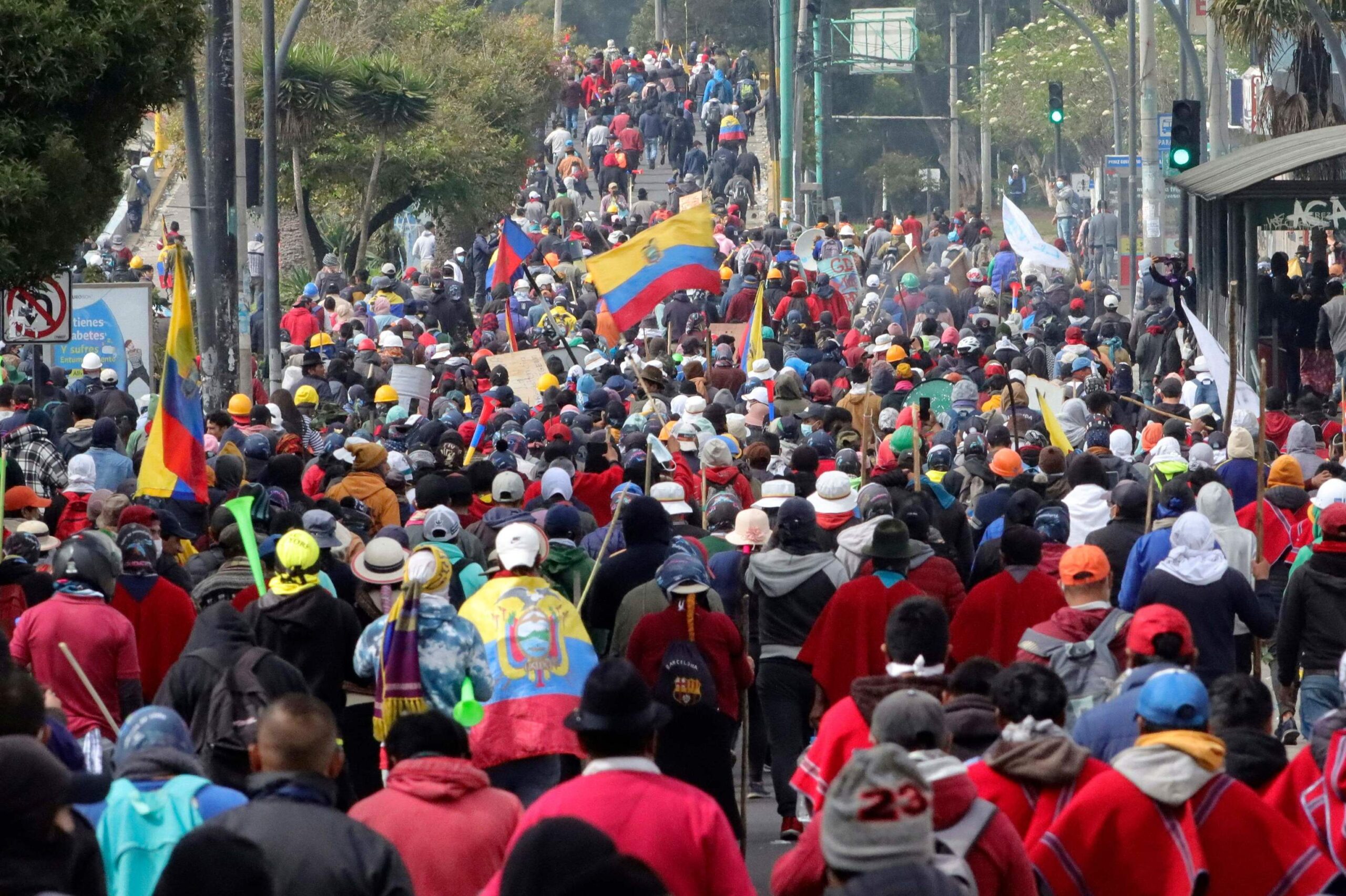The indigenous challenge against President Guillermo Lasso is enormous. Despite the imposition of a state of emergency in six provinces, including the capital, protesters from the mountains have managed to partially take Quito. Chaos reigned yesterday in the surroundings of the Central University, a reception area for part of the protest, and in the other traditional points: the House of Culture and the El Arbolito park.
Blockades and confrontations between the police and the indigenous people were also maintained in different accesses to the capital. A more serious situation was still experienced this Tuesday in the provinces, after the death of a protester in Puyo, which has caused serious altercations at night. The indigenous have destroyed the Police detachment and a headquarters of the Bank of Guayaquil, which belonged to Lasso himself.
Puyo, the capital of one of the provinces in a state of emergency, has woken up with the remains of burned vehicles and with several “disappeared” agents, for which it is believed they will be held by the rebels. “The violent mob put at risk and generated terror in the city. This is not a disturbance, it is a criminal act,” said Patricio Carrillo, Minister of the Interior.
The Alliance of Organizations for Human Rights on Tuesday called on the Inter-American Court of Human Rights to act urgently in the face of “the serious violations committed in the National Strike”, in addition to demanding “strict compliance with its obligations in relation to the right to social protest and resistance”. The provisional balance of this organization raises the number of injured to 74, along with the two fatalities. It also figures in a hundred detainees.
“The Lasso government must ensure that the security forces do not use excessive force. Demonstrations must be carried out peacefully. Ecuador cannot repeat what happened in 2019,” said Tamara Taraciuk, acting director for the Americas of Human Rights Watch (HRW).
The Ministry of Health has made public, for its part, that two people died due to the blockade of streets and highways, by preventing their transfer in ambulances. The journalistic guild has also denounced the attacks suffered by 30 reporters during the coverage of the confrontations.
In parallel, on social networks, images of the intimidation and violence actions of the most radical elements against those who do not comply with the dictates of the National Strike have multiplied, including the burning of a taxi and the blocking of the roads of all imaginable shapes.
The tenth day of the National Strike has confirmed to the country that the pulse between Leopoldo Iza, leader of Conaie (Confederations of Indigenous Nationalities of Ecuador) and ally in the shadows of former President Rafael Correa, and the conservative president goes beyond subsidies to alleviate The price of fuel.
“The shortages, the families with hunger and the brake on the reactivation are the true consequences of the chaos in Ecuador. The violent ones have repressed their own community, the confrontations must stop”, complained Lasso, who has accepted the invitation to the dialogue of civil society, while Iza lays low and demands guarantees such as the repeal of the state of siege.
“Iza provokes the system to come out as a victim. They want to take advantage of the fact that it is not an aligned government to say that they are victims of the right and of the oligarchic groups in power. While society is afraid that the public force will not be able to control the protests “, Michel Leví, coordinator of the Andean Center for International Studies of the Andean University, has summarized for EL MUNDO.
“The protests have intensified despite the extension of the state of exception. It is a precarious situation for Lasso. Conaie has an extensive list of demands and has rejected any form of compromise with the government and its economic agenda. They demand more subsidies , reduced fuel prices and a moratorium on new oil and mining projects,” political scientist John Polga-Hecimovich added for this newspaper.
Conforms to The Trust Project criteria
















